Ayurveda in Sri Lanka
Insiders tips
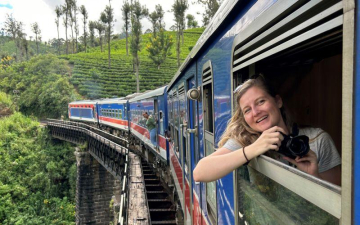


Discover all our Ayurveda in Sri Lanka holidays
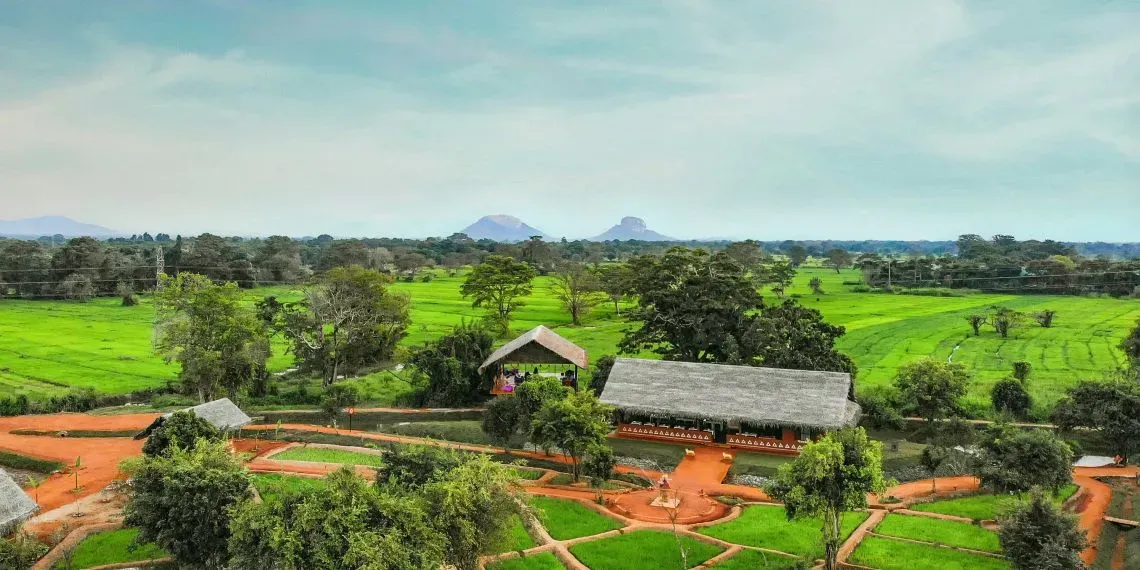
Experience the healing power of Ayurveda with a personalised treatment plan tailored to your unique doshas. Daily therapies, customised nutrition and yoga restore deep balance, cleanse the body and rejuvenate body and mind
Panchakarma is Ayurveda’s classic purification therapy. Through five deep-cleansing treatments, the body releases toxins, promoting physical lightness, mental clarity, and a renewed sense of balance from within
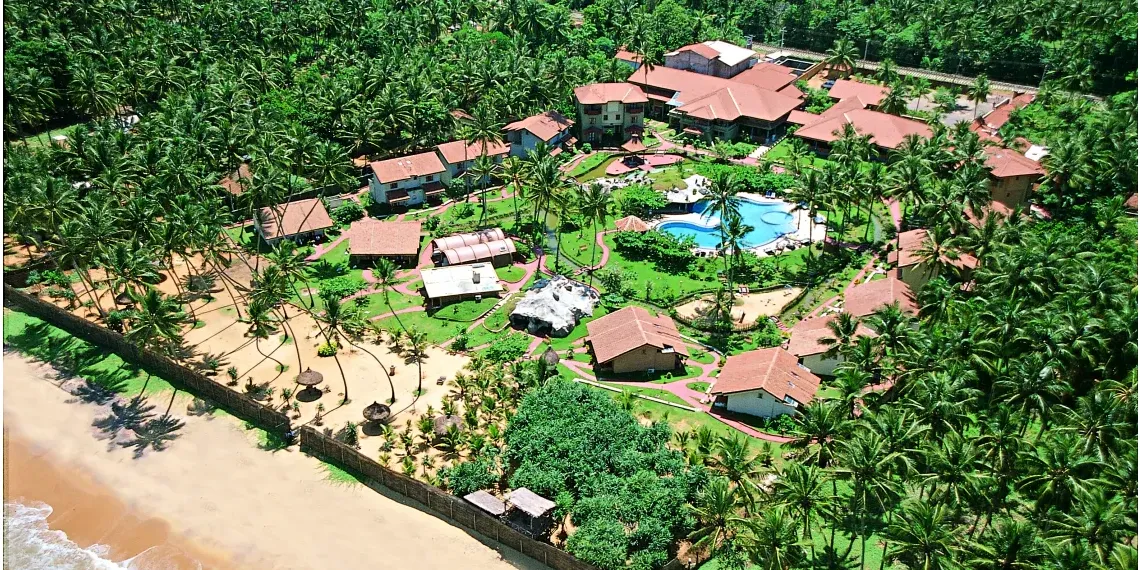
Experience the healing power of Ayurveda with a personalised treatment plan tailored to your unique doshas. Daily therapies, customised nutrition and yoga restore deep balance, cleanse the body and rejuvenate body and mind.
Panchakarma is Ayurveda’s classic purification therapy. Through five deep-cleansing treatments, the body releases toxins, promoting physical lightness, mental clarity, and a renewed sense of balance from within

Experience the healing power of Ayurveda with a personalised treatment plan tailored to your unique doshas. Daily therapies, customised nutrition and yoga restore deep balance, cleanse the body and rejuvenate body and mind
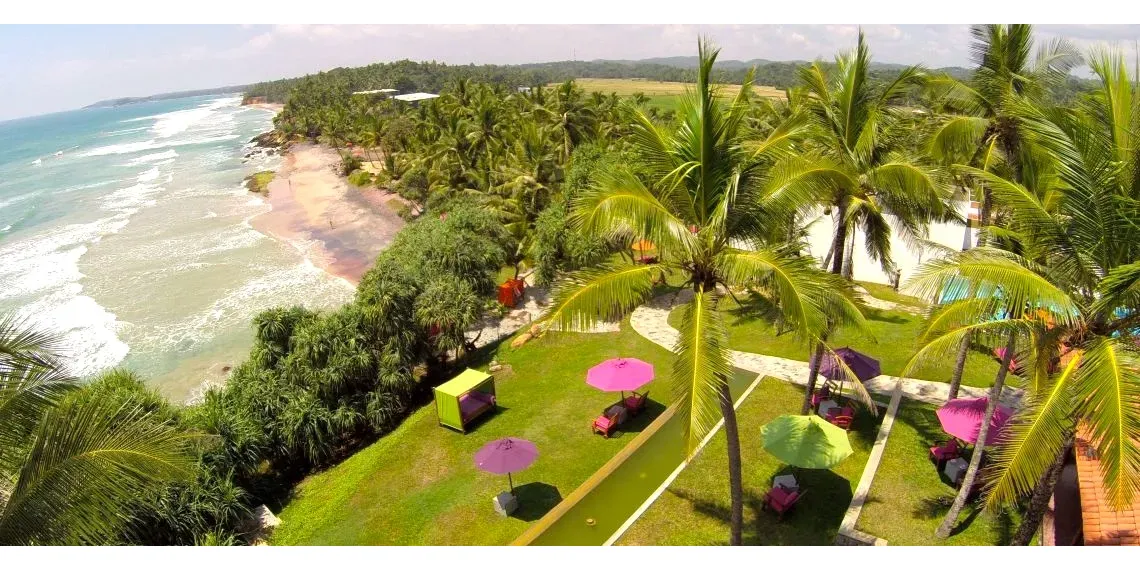
Experience the healing power of Ayurveda with a personalised treatment plan tailored to your unique doshas. Daily therapies, customised nutrition and yoga restore deep balance, cleanse the body and rejuvenate body and mind
Panchakarma is Ayurveda’s classic purification therapy. Through five deep-cleansing treatments, the body releases toxins, promoting physical lightness, mental clarity, and a renewed sense of balance from within

Whether you seek healing or wish to stay well, Ayurveda nurtures both. With deep relaxation, detoxification and rejuvenation, this holistic tradition restores your natural balance and vitality—body, mind, and spirit aligned
Panchakarma is Ayurveda’s classic purification therapy. Through five deep-cleansing treatments, the body releases toxins, promoting physical lightness, mental clarity, and a renewed sense of balance from within
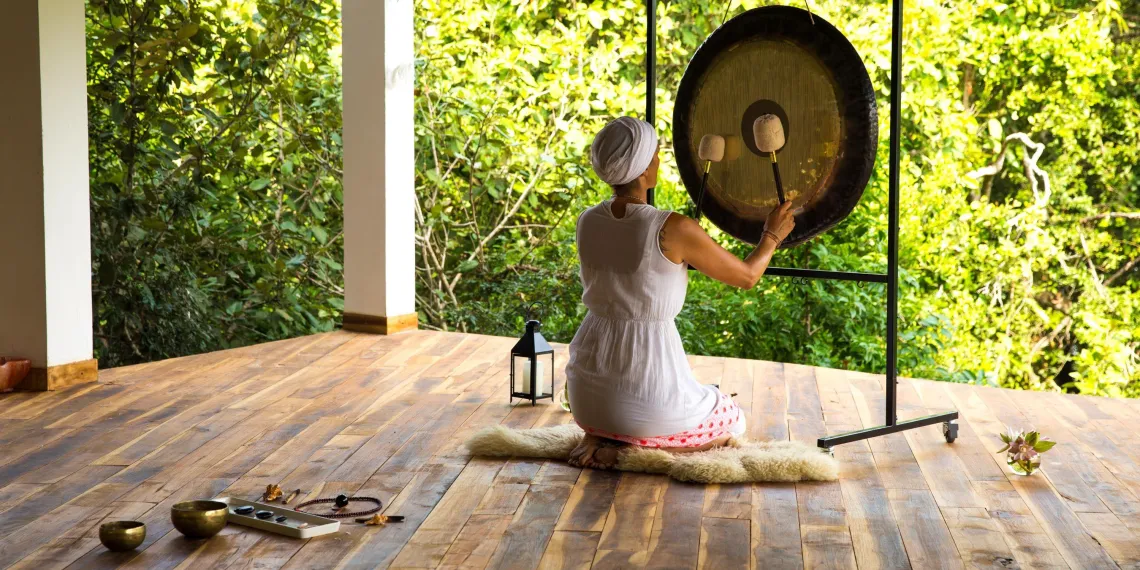
Experience the healing power of Ayurveda with a personalised treatment plan tailored to your unique doshas. Daily therapies, customised nutrition and yoga restore deep balance, cleanse the body and rejuvenate body and mind

Experience the healing power of Ayurveda with a personalised treatment plan tailored to your unique doshas. Daily therapies, customised nutrition and yoga restore deep balance, cleanse the body and rejuvenate body and mind
Panchakarma is Ayurveda’s classic purification therapy. Through five deep-cleansing treatments, the body releases toxins, promoting physical lightness, mental clarity, and a renewed sense of balance from within
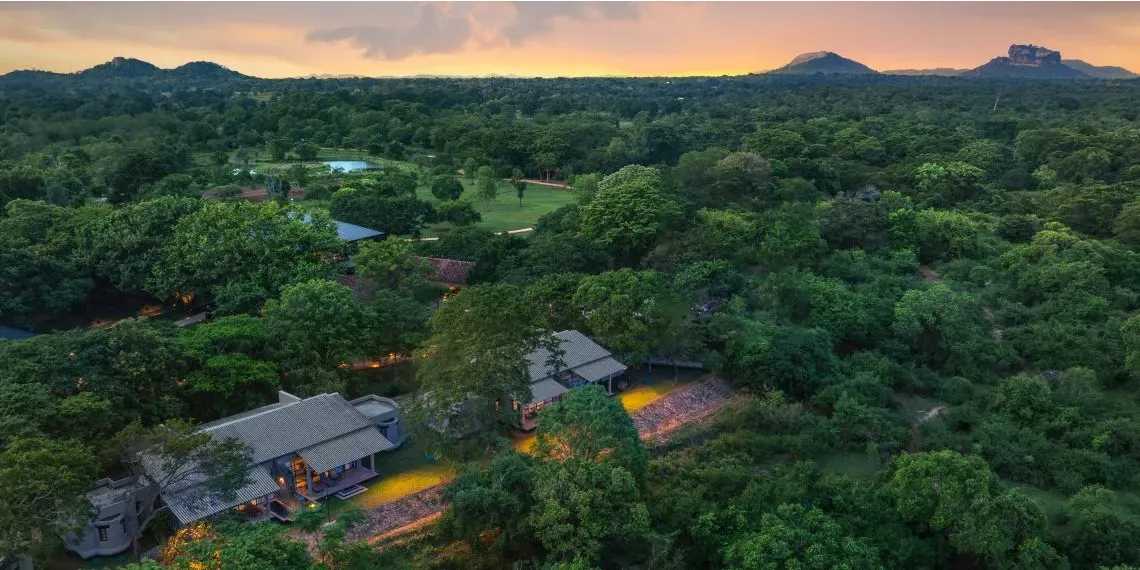
Experience the healing power of Ayurveda with a personalised treatment plan tailored to your unique doshas. Daily therapies, customised nutrition and yoga restore deep balance, cleanse the body and rejuvenate body and mind

Experience the healing power of Ayurveda with a personalised treatment plan tailored to your unique doshas. Daily therapies, customised nutrition and yoga restore deep balance, cleanse the body and rejuvenate body and mind
Shape your wellness journey with natural weight loss the Ayurvedic way. Herbal massages, detox teas, and tailored nutrition help restore inner balance and support sustainable, healthy weight goals

Experience the healing power of Ayurveda with a personalised treatment plan tailored to your unique doshas. Daily therapies, customised nutrition and yoga restore deep balance, cleanse the body and rejuvenate body and mind

Experience the healing power of Ayurveda with a personalised treatment plan tailored to your unique doshas. Daily therapies, customised nutrition and yoga restore deep balance, cleanse the body and rejuvenate body and mind
Ayurveda in Sri Lanka
Sri Lanka is considered a great Ayurveda destination for several reasons. Ayurveda is an ancient system of medicine that originated in India thousands of years ago and was later adopted and developed in Sri Lanka. Sri Lanka's natural environment, which includes tropical forests, mountains, and beaches, provides the perfect setting for Ayurveda treatments that promote wellness and balance. Why should you do an Ayurveda holiday in Sri Lanka?
- Natural environment: Sri Lanka's natural environment is rich in medicinal plants, herbs, and minerals that are used in Ayurvedic treatments. The country's tropical climate, beaches, and mountains create a serene and peaceful environment that is conducive to healing and relaxation.
- Experienced practitioners: Sri Lanka has a long history of Ayurvedic medicine, and many practitioners have been practicing for generations. The practitioners in Sri Lanka have developed their own unique approaches to Ayurveda, which incorporate traditional practices and modern techniques.
- Range of treatments: Sri Lanka offers a wide range of Ayurvedic treatments, including massages, herbal remedies, detoxification programs, and more. These treatments are tailored to each individual's unique needs and can address a variety of health issues.
- Accredited Ayurveda hotels and centers: Sri Lanka has several accredited Ayurveda centers that offer high-quality treatments and services. These centers follow strict guidelines and regulations to ensure that visitors receive safe and effective treatments.
- Cultural immersion: Sri Lanka offers visitors an opportunity to immerse themselves in the local culture and learn about Ayurveda practices that have been passed down for generations. Many Ayurveda centers offer cultural experiences that include cooking classes, yoga, and meditation.
Sri Lanka's natural environment, experienced practitioners, range of treatments, accredited Ayurveda centers, and cultural immersion make it an attractive destination for those seeking an authentic Ayurveda experience.
What is Ayurveda
Ayurveda, a natural system of medicine, originated in India more than 3,000 years ago. The word ‘Ayurveda’ is derived from the Sanskrit words ayur (life) and veda (knowledge). Thus, Ayurveda translates to knowledge of life. Ayurveda is based on the concept that health and wellbeing depend on a delicate balance between the mind, body, and spirit. Ayurveda is recognized as a complementary and alternative medicine system, and it is becoming increasingly popular as people seek out more natural and holistic approaches to healthcare. In Ayurvedic medicine, practitioners use a holistic approach to healing that includes a variety of techniques, including herbal remedies, dietary guidelines, massage, yoga, and meditation. The goal of Ayurveda is to help people achieve optimal health by restoring balance to their physical and mental state. Read our blog
The benefits of Ayurveda
Ayurveda can help to improve physical, mental, and emotional health, and promote a sense of balance, harmony, and wellbeing. Ayurveda also achieves remarkable results for rheumatic conditions, sleep problems, chronic fatigue, stress, high blood pressure, migraines or skin diseases. Ayurvedic philosophy also offers us greater insight into ourselves and the world around us. Specialized Ayurveda resorts (mainly in India, Sri Lanka and Nepal) you’ll receive two to four treatments per day, such as head, body and synchronized massages, Shirodhara, Nosil treatments, herbal baths and steam baths. Ayurvedic medicine is gentle and based on a natural approach.
We listed some of the benefits of Ayurveda
- Improve digestion: Ayurvedic dietary guidelines and herbal remedies can help to improve digestion and promote a healthy gut.
- Reduce stress and anxiety: Ayurvedic techniques such as meditation, yoga, and massage can help to reduce stress and anxiety, which can improve overall health and wellbeing.
- Boost immunity: Ayurvedic remedies and practices are believed to boost the immune system, helping to prevent illness and disease.
- Balance hormones: Ayurvedic treatments can help to balance hormones and reduce symptoms associated with hormonal imbalances, such as mood swings, hot flashes, and menstrual cramps.
- Manage chronic health conditions: Ayurveda can help to manage chronic health conditions such as diabetes, arthritis, and heart disease, by addressing the root cause of the condition and promoting overall health and wellbeing.
- Enhance mental clarity: Ayurvedic practices such as meditation and mindfulness can help to improve mental clarity, focus, and concentration.
Type of Ayurveda programs
There are various types of Ayurveda programs, depending on health needs and goals. There are Ayurveda light programs for a week (Rasayana), intensive panchakarma (purification of body and mind) programs for a minimum of 2 weeks or medical Ayurveda programs (for the treatment of specific conditions or complaints). Medical Ayurveda require a longer stay. We also recommend repeat treatments and therapies.
We listed some of the most common types of Ayurveda programs
- Panchakarma: A traditional Ayurvedic detoxification program that includes a series of therapies, such as massage, herbal remedies, and cleansing techniques to remove toxins from the body.
- Ayurvedic diet and nutrition: Ayurveda offers guidelines on diet and nutrition, including specific foods and spices that are believed to promote good health and balance the doshas.
- Herbal remedies: Ayurvedic practitioners use a variety of herbal remedies to address specific health concerns and promote overall wellness.
- Yoga and meditation: Yoga and meditation are integral parts of Ayurveda, and many Ayurvedic programs incorporate these practices to promote physical and mental wellbeing.
- Ayurvedic lifestyle counseling: Ayurvedic practitioners offer lifestyle counseling to help individuals make positive changes in their daily habits and routines, such as sleep patterns, exercise, and stress management.
- Ayurvedic massage and bodywork: Ayurveda includes various massage and bodywork therapies, such as Abhyanga, Shirodhara, and Pinda Sweda, to promote relaxation and improve overall health.
What to expect on an Ayurveda day
A typical day in Ayurveda can vary, depending on the individual's specific health needs and goals and the Ayurvedic program you are following. However, there are certain practices that are common in Ayurvedic daily routines, known as Dinacharya. A typical Ayurveda day usually begins with yoga and ends with meditation. Ayurvedic meals are mostly vegetarian (only sometimes with chicken or fish once or twice a week). An Ayurveda program isn’t only limited to massages and treatments, but also includes nutrition, herbs, health products, yoga, meditation, readings, workshops and other activities.
Here is an example of a typical day in Ayurveda:
- Rise early: Ayurveda recommends waking up early, ideally before sunrise, to align with the body's natural circadian rhythms and promote good health.
- Tongue scraping: One of the first practices upon waking is to scrape the tongue with a tongue scraper to remove any toxins that may have accumulated overnight.
- Drinking warm water: Drinking a glass of warm water is recommended to help flush out toxins from the body and promote digestion.
- Yoga or exercise: Engaging in yoga or other forms of exercise helps to promote physical and mental wellbeing and can be tailored to an individual's specific needs.
- Breakfast: Ayurveda recommends a nourishing breakfast, such as warm oatmeal or a vegetable omelet, that is easy to digest and provides sustained energy throughout the day.
- Ayurveda personalized treatment plan: Ayurveda treatments will be scheduled in the morning, sometimes in the afternoon. The Ayurvedic doctor will assess the imbalances in the doshas by using various diagnostic tools including pulse diagnosis, tongue examination and assessment of the individual's overall physical and emotional state. Based on this assessment, the Ayurvedic doctor will develop a personalized treatment plan that include a day-to-day treatment plan, dietary suggestions, herbal remedies, lifestyle modifications and other Ayurvedic therapies. In addition to providing the personalized treatment plan, the Ayurvedic doctors may also offer guidance on diet and lifestyle modifications to promote optimal health and wellbeing. They may also provide education on Ayurvedic principles and practices to empower individuals to take an active role in their own health and wellness.
- Lunch: Ayurveda recommends a nourishing lunch that is the main meal of the day, consisting of a variety of whole grains, vegetables, and protein sources.
- Rest and relaxation: Taking time to rest and relax in the afternoon is an important part of Ayurvedic daily routine, which can include meditation, reading, or taking a nap.
- Light dinner: Ayurveda recommends a light dinner that is easy to digest, such as soup or steamed vegetables, to avoid overburdening the digestive system.
- Bedtime routine: An Ayurvedic bedtime routine may include practices such as oiling the feet, taking a warm bath or reading a book to promote relaxation and restful sleep.
Typical Ayurveda treatments
Ayurveda offers a wide range of treatments that are tailored to an individual's specific health needs and imbalances. In Ayurveda treatments, the therapists use a lot of warm oils with herbs that are rubbed pretty much all over the body. The herbs are absorbed into the skin through the oil. The specific treatments recommended will vary based on an individual's unique health needs and imbalances, and should be customized by an experienced Ayurvedic doctor.
We listed the following Ayurvedic treatments.
- Abhyanga: A full-body massage with warm oil that promotes relaxation, improves circulation, and nourishes the skin.
- Shirodhara: A therapy where warm oil is poured in a continuous stream onto the forehead, which helps to calm the mind and nervous system. We also call this pouring oil on the ‘third eye’.
- Basti: An herbal enema that is used to promote elimination of toxins from the colon and improve digestion.
- Nasya: A therapy where herbal oil is poured through the nostrils to treat respiratory and sinus conditions.
- Udvartana: A massage with herbal powders that is used to promote weight loss, improve circulation, and reduce cellulite.
- Netra Tarpana: Warm ghee is poured into the eyes to improve vision, reduce eye strain, and relieve dry eyes.
- Kati Basti: Warm herbal oil is held in a dough dam on the lower back to relieve pain and tension in the lumbar region.
- Shiro Abhyanga: A head and scalp massage with warm oil that promotes relaxation, relieves tension headaches, and nourishes the hair and scalp.
- Marma therapy: A gentle massage of the body's energy points, which can help to release emotional blockages and promote overall wellbeing.
- Sound therapy: Ayurvedic practitioners may use sound therapy, such as chanting, singing bowls, or tuning forks, to balance the doshas and promote relaxation.
- Ayurvedic facials: A facial treatment that uses herbal ingredients to nourish and rejuvenate the skin, promote circulation, and reduce inflammation.
- Herbal remedies: Ayurvedic practitioners may prescribe herbal remedies, which can include teas, tinctures, powders, and tablets, to address specific health concerns and imbalances.
- Diet and lifestyle modifications: Ayurveda places great emphasis on diet and lifestyle modifications to promote optimal health and wellbeing. Ayurvedic practitioners may offer guidance on diet, exercise, and other lifestyle modifications to support an individual's specific health needs and imbalances.
- Yoga and meditation: Ayurveda recognizes the mind-body connection and the importance of incorporating practices that promote mental and emotional wellbeing. Yoga and meditation are often recommended as part of an Ayurvedic treatment plan to promote relaxation, reduce stress, and improve overall health and wellbeing.
Ayurvedic treatments are designed to promote balance, restore health, and prevent disease. The specific treatments recommended will vary based on an individual's unique health needs and imbalances.
Which Dosha type are you: Vata, Pitta or Kahpa?
In Ayurveda, the doshas are three fundamental life energies that govern all biological processes within the human body and mind. According to the Ayurvedic philosophy, from birth, we all have a unique balance of the three Dosha types. This balance is reflected in a person’s body shape, immune system, character traits and behaviour. The three doshas are: Vata, Pitta and Kahpa. Every one of us is different and has a different balance of these three energies. If everything was perfect, all three energies are equally balanced. If one of the three doshas is dominant, physical or mental issues will develop. An Ayurveda program is designed to rebalance the three doshas.
- Vata: The Vata dosha is associated with movement and is responsible for all movement within the body, including the movement of nerve impulses, blood flow, and digestion. Vata represents impulsiveness. Vatas could be identified by a slight body shape, mobility and a restless mind. People with a predominant Vata dosha tend to be creative, energetic, and quick-thinking, but they may also experience anxiety, dry skin, and digestive issues when the dosha is imbalanced. Vatas are susceptible to experiencing anxiety and stress.
- Pitta: The Pitta dosha is associated with transformation, fire and is responsible for metabolic processes within the body, including digestion, absorption, and assimilation. People with a predominant Pitta dosha tend to be ambitious, focused, demanding, determined, critical and detail-oriented, but they may also experience irritability, inflammation, and digestive issues when the dosha is imbalanced.
- Kapha: The Kapha dosha is associated with stability, structure and is responsible for the body's physical structure, stability, and immunity. People with a predominant Kapha dosha tend to be calm, grounded, respectful, empathic and nurturing, but they may also experience lethargy, weight gain, emotional eating and respiratory issues when the dosha is imbalanced.
It's important to note that everyone has a unique combination of all three doshas, known as their Prakriti or natural constitution. The balance of these doshas can be influenced by various factors such as diet, lifestyle, stress, and environmental factors. An Ayurvedic doctor can help to identify an individual's Prakriti and recommend dietary and lifestyle changes to help balance the doshas and promote overall health and wellbeing.
Good to know for your next Ayurveda holiday
- In Ayurveda, it is common that male therapists will treat males, and female therapists will treat females. This is the case in India and Sri Lanka. In Europe, ayurvedaresorts may deviate from this because there is often just one or two Ayurvedic therapists. If, as a woman, your preference is to be treated by a female therapist, please let the ayurvedic doctor know when creating your personalised ayurveda plan.
- Bring your favourite books and magazines. In line with Ayurvedic philosophy, most authentic Ayurveda resorts in India and Sri Lanka do not have TVs or air-conditioning so that you can really relax.
Need advice from the experts
If you have any other questions about Ayurveda or need advice where to find your perfect Ayurveda resort, the Puurenkuur Wellbeing experts are here to help.

 EN
EN NL
NL BE
BE







